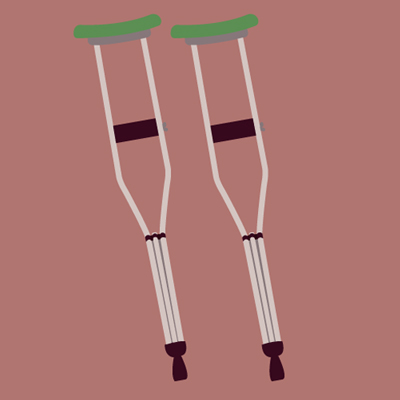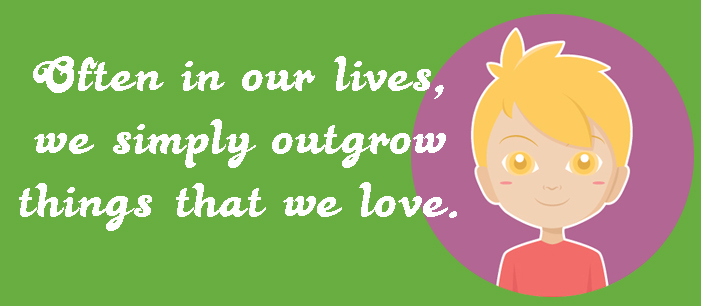Learning to live un-tethered to guilt.
When I was in the 7th grade, I saw a shirt in the mall that I knew I had to have. It was a velvety material with thick orange and white stripes along the middle and black on the bottom and top, and it was sweet. Of course I asked my mom to buy it for me, but she refused, saying it was too expensive for one shirt, and I wouldn’t get much use out of it. I searched my drawers and had some birthday money left, so I decided to treat myself. It was my most favorite shirt ever, everything I had hoped for, and I wore it every day that it was clean until I grew too big to pull it on any longer. I remember looking at it sadly, knowing that it was still in great shape and would still look sweet, but I had simply outgrown it and could no longer pretend that it fit.
Often in our lives, we simply outgrow things that we love.
Life happens, we learn new information, we realize new ideas, and we become aware that what we were doing or who we were doing it with suddenly feels too tight, too restrictive. For whatever reason, this is usually accompanied by the feeling of guilt for what we are leaving behind. We tend to think that if we move on, it means we are disloyal or that somehow we weren’t truthful in the past when we said we loved it. But why would moving on have to be tethered to guilt?

Life is like that for adults, too. When my wife broke her foot one year just before Christmas, she spent three months on crutches and couldn’t wait to get rid of them. The day she finally was able to walk without them, she still looked around for them before getting up, because she was used to relying on them to get her through. After the bone had healed, there was no more need for a crutch to help support her, but the habit was ingrained. Although she was nervous about re-injuring that foot, she had to push on without crutches to strengthen her body and get back to normal.

Understanding ourselves, that we sometimes outgrow things that once seemed impossible to live without, and being able to move beyond them is imperative if we are to grow as a person and have fresh, new experiences in life. There’s nothing wrong with taking a look in your closet and seeing that the things that used to fit like a glove may no longer suit you, putting down the metaphorical crutches and trying to stand on your own two feet. Removing the crutches not only allows you to move freely, unencumbered by the ideas of being tethered to the same spot, but it also helps illuminate the fact that you have everything within to be a whole, happy and unbroken person.
If you have any questions or comments give us a call at Gulf Breeze Recovery 833.551.2356.







